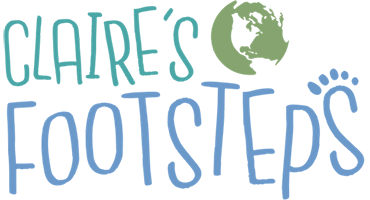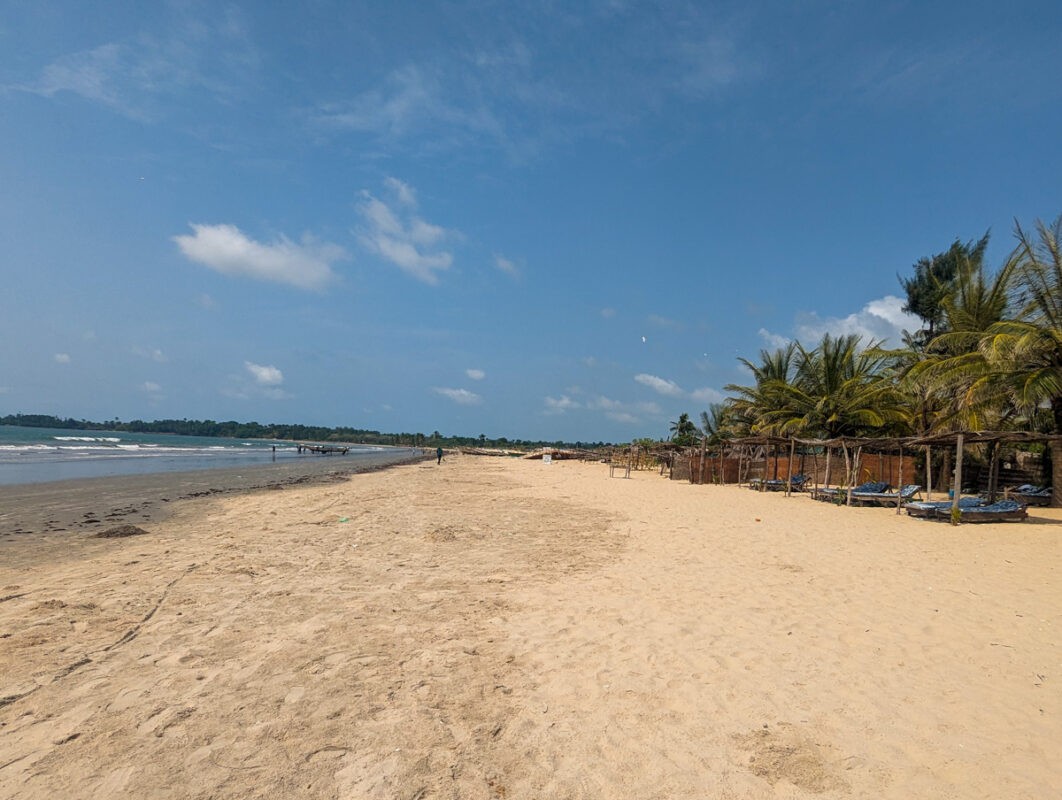Is The Gambia safe?
If you’re visiting The Gambia, you might be wondering about travel safety in this West African country.
I felt safe while I was in The Gambia – here are all my other travel tips!
Is The Gambia safe?
Yes! The Gambia is a safe and friendly country. There are a few things to consider (which I’ll go into in this post) but it’s generally very welcoming to tourists.
I spent a week here, exploring the beaches and inland, and here’s what I thought about its safety!
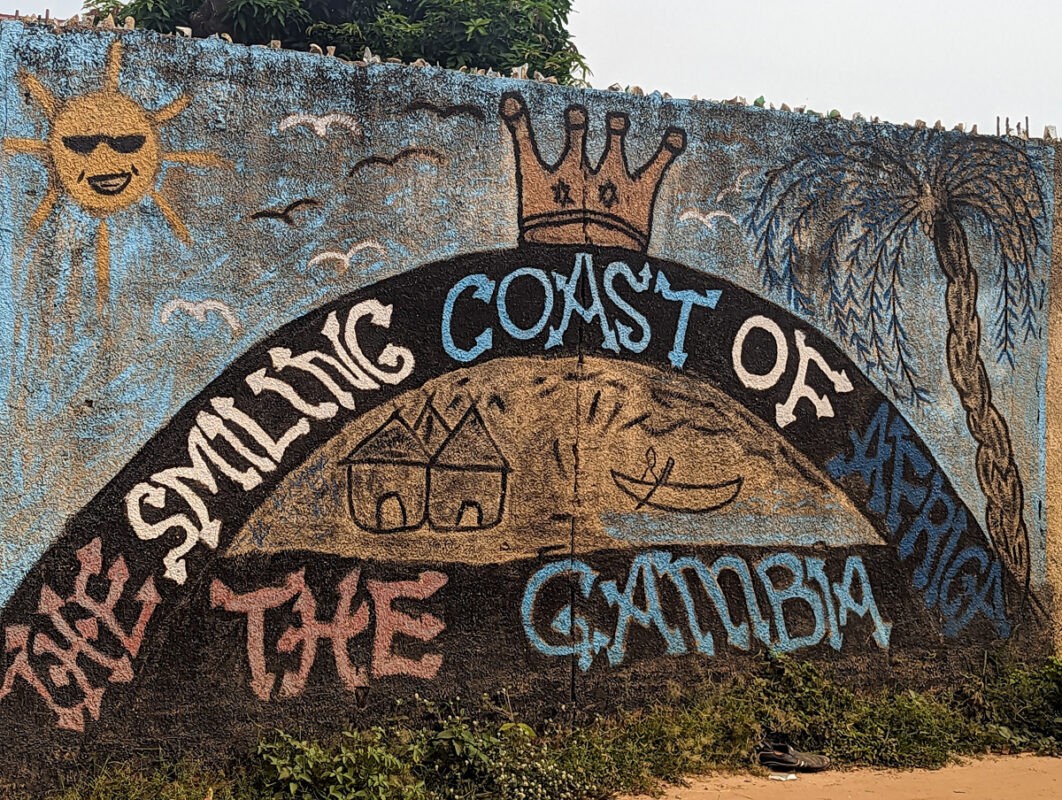
Crime in The Gambia
I didn’t notice any particular crime in The Gambia, but when checked its crime rate in Numbeo it is “moderate” and “high” on most factors.
However, it must be said that the crime rates between Bakau (one of Gambia’s urban areas) and London or Chicago are comparable.
Bribery and corruption in The Gambia
One thing that I did notice a lot of in The Gambia was bribery and corruption. We went on a two day tour with local guide Omar (owner of Omi Tours), who was pulled over many times for various reasons which didn’t appear to be his fault at all.
He had to bribe several police officers when doing this. We were never personally bribed, although we were with a guide all the time when driving around – I imagine international tourists self-driving would also need to bribe officials.
Poverty in The Gambia
The Gambia is, sadly, a poor country.
That said, there isn’t much begging – like in Senegal, people are much more entrepreneurial and have set up micro businesses.
As tourism is one of its main industries, many tourist-focused businesses have popped up, from small guesthouses to transport organisation. You’ll likely be approached by people around your hotel who will offer to arrange parts of your holiday.
By all means, chat with them if you are interested in booking tours or transport – they’ll nearly always be able to help – but be mindful that some people may ask for tips if they give you lots of information, or you could feel obliged to use one of their services.
Child poverty in The Gambia
Another thing that we did find difficult to navigate was child poverty. There were a lot of kids begging for money; we thought that some of them were taken out of school to do so. Due to this, we don’t ever give kids money or try to do anything that could further incentivise them to miss school.
When we were at the Barra ferry terminal, we were approached by a few people to purchase pens and paper to give to the children, but again, didn’t want to do this as it seemed like a bit of a cycle; adults were selling pens and paper to tourists, tourists were giving them to children, and for all we knew, children might be giving them back to the adults to resell!
Either way, children weren’t in school when they should have been, which we didn’t want to support.
Side note, but semi-related: a lot of tours in The Gambia include trips to visit children in schools, which we didn’t want to do – we wouldn’t go to a school in Europe when travelling around, so why should going to a school in Africa be any different? Plus, the kids should be focusing on their studies and not be interrupted by tourists.
I’m going to write a full blog post about this, but in short, it seems like tourist demand is there so tour companies do offer it. Both Gambian tourist guides who we spoke to about it were very happy to remove it from the itinerary and we spoke to one at more length about it – he found the concept just as strange as us.
I recommend being careful who you give your money to in The Gambia to ensure you’re not supporting the wrong things. Instead, give your money to charities like Gambia Healthcare Matters which supports Gambia’s healthcare system.
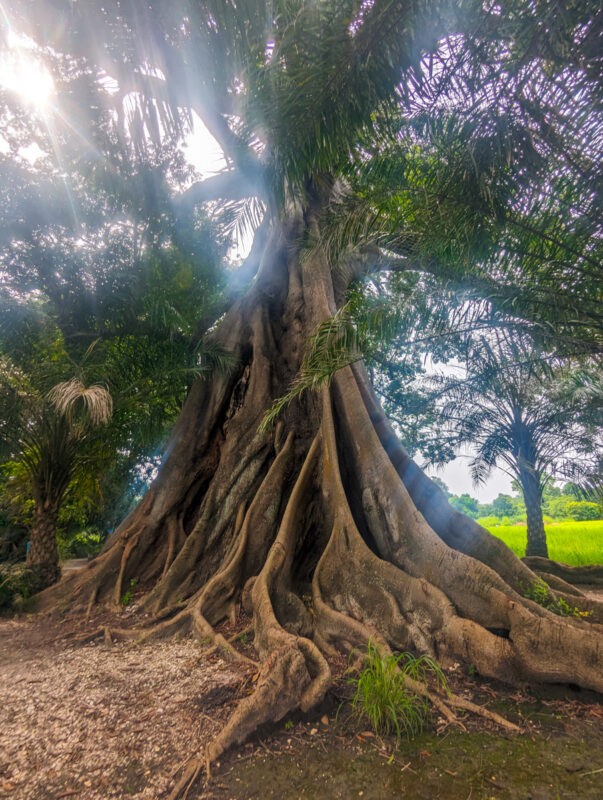
Political protests in The Gambia
When we visited Kunta Kinteh Island, we saw an exhibition about Gambian politics and how Yahya Jammeh had a very strict 22 year rule with no freedom of speech, with many Gambians being arrested or “going missing” during this time.
The political situation is better nowadays; in 2017, Adama Barrow was made president and while there are still issues in the country, there is nowadays freedom of speech.
This means that there are fewer protests, although they do still happen. Like always, it’s sensible for tourists to not join any protests – just steer clear if you see anything happening – but it’s unlikely to in the touristy beachy areas anyway.
Road safety in The Gambia
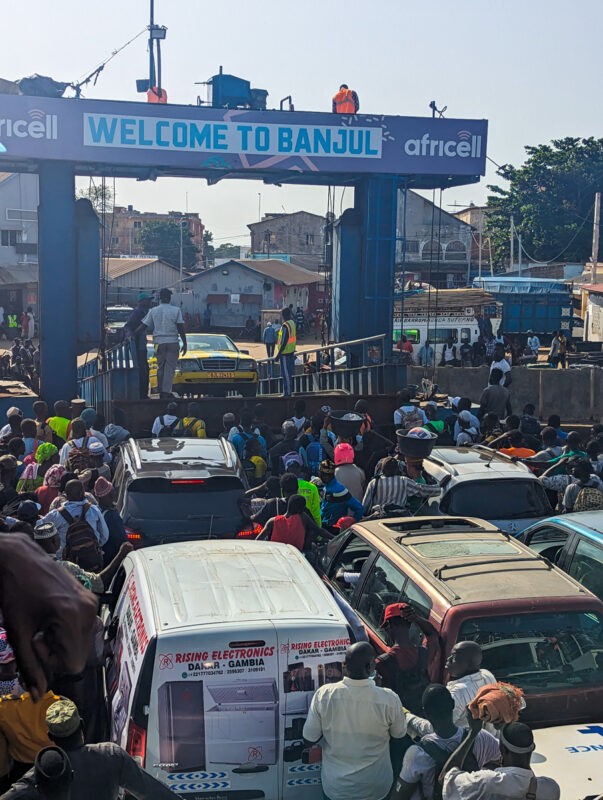
Roads can be a bit wild in The Gambia! Cars speed around the gravel roads, and there are lots of potholes and bumps.
That said, once you’re out of the city, the main road is pretty much straight up one side of the river and straight down the other. If you’re self-driving, my advice would be to take it slow out of the city and be constantly mindful of other cars in the cities.
Can you drive in The Gambia?
It’s worth pointing out that my partner was driving my guide’s car at one point, but the police pulled him over and asked him for a bribe!
You can technically drive a car for three months on UK licences (check your country’s requirements before driving there) but be prepared to pay lots of bribes for various reasons (maybe insurance, not having something in your car, or speeding even if you’re well within the speed limits!).
Solo female travellers in The Gambia
I didn’t travel on my own in The Gambia, so I can’t comment too much on this.
I would feel comfortable staying at the beach hotels on my own, although I imagine as a solo female I’d get more attention walking around than I did with my partner. But solo females do travel to The Gambia without trouble!
Terrorism in The Gambia
While other countries in West Africa do have terrorist incidents, The Gambia hasn’t had such issues. Of course, attacks could happen – they can anywhere – but the risk is about the same as European countries.
Food and water hygiene in The Gambia
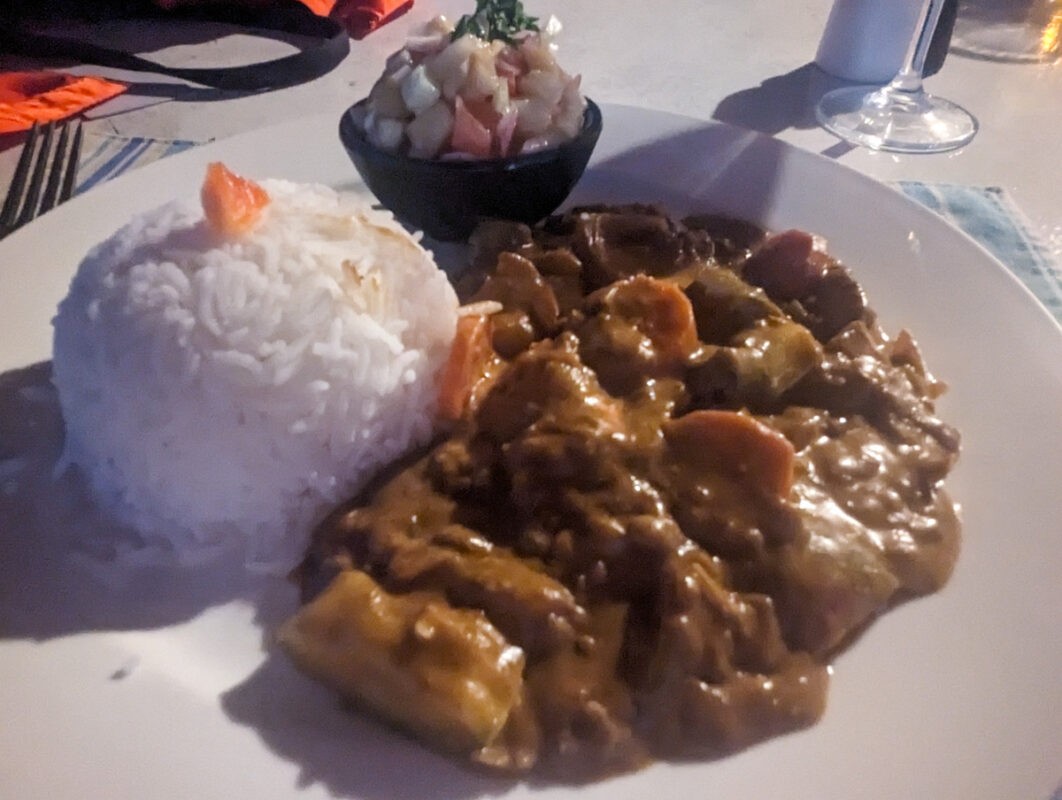
Food poisoning can happen in The Gambia; I’d recommend making sure that all food is cooked fresh, avoiding salads and being especially careful with meat and fish. That said, we were fine with all the food (we mainly ate in established restaurants and are vegetarian).
Don’t drink tap water; instead, take a Water to Go bottle with a built in filter – just fill it up from the tap and you’ll be able to drink clean water straight from the bottle! Otherwise, drink bottled water.
Animals in The Gambia
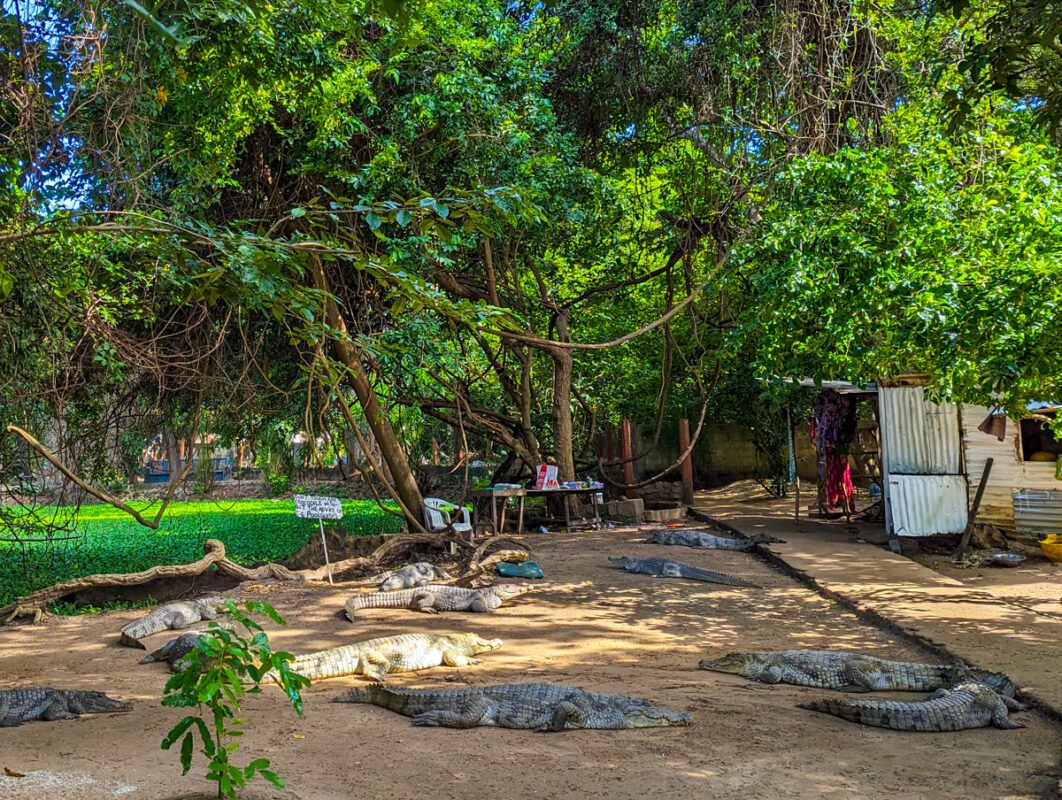
There are a few dangerous animals in The Gambia, although they shouldn’t pose too much of a risk!
I wouldn’t go walking around in long grass due to snakes, and personally wouldn’t swim in any rivers as there are crocs and hippos – there are areas that are marked safe for swimming but I personally wouldn’t take any risks.
Malaria in The Gambia
Malaria does exist in The Gambia, especially during the wet season. We visited at the end of the wet season and opted to take Atovaquone/Proguanil (Malarone) tablets for the time we were there.
Our guide, Omar, told us he’d had malaria quite a few times and had been very ill with it, and mentioned that tourists have less natural immunity to it so he’d always recommend tourists take malaria tablets.
Mosquitos can, of course, transmit a number of other diseases, so I’d highly recommend using very strong DEET mosquito spray to avoid bites.
Vaccinations for The Gambia
There are a few other recommended vaccinations for The Gambia too:
- Hepatitis A
- Tetanus
- Yellow Fever
- Rabies
- Typhoid
If you’re planning to travel from Senegal to Gambia (which includes if you’re doing a day trip to Fathala Wildlife Reserve), you’ll technically need your Yellow Fever passport – although I wasn’t actually asked for this.
Health in The Gambia
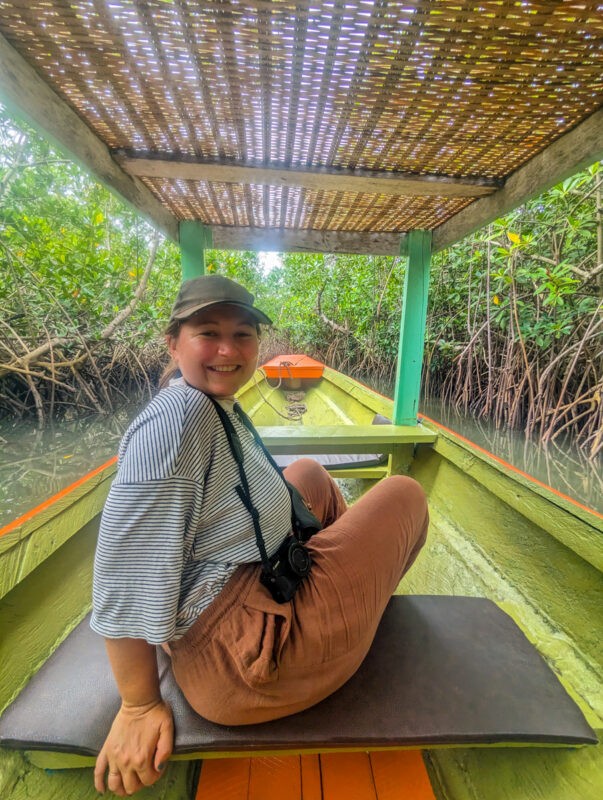
Gambian healthcare is sadly in a bad way; it’s very difficult to secure antibiotics or other medication. I’d highly recommend supporting Gambia Healthcare Matters which are trying to help this situation for locals.
I’d highly recommend ensuring you have travel insurance before travelling to The Gambia that will cover any hospital stays. I’d also advise making sure you’re as protected as possible with vaccinations and avoiding food poisoning so you don’t overcrowd hospitals or use local resources.
I use and recommend SafetyWing.
English in The Gambia
English is the official language of The Gambia, although locals converse in mainly Mandinka (some speak in Wolof). All Gambians, however, do speak very good English (they use it at school and work).
This makes it easy to speak to locals and get travel and safety tips; most people we met were very friendly!
General safety tips for The Gambia
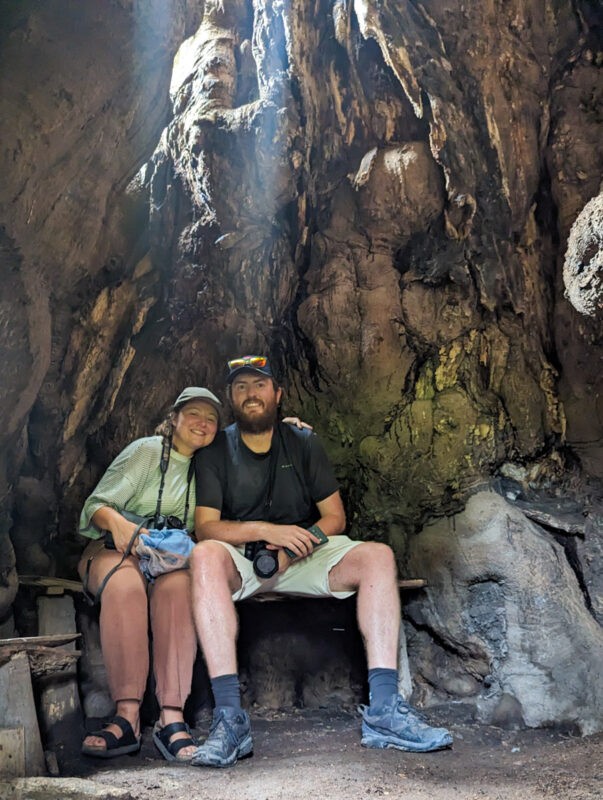
Here are some Gambia safety travel tips.
Stay informed on local developments
While The Gambia is more politically stable than other countries in the area, keep informed about the current political climate, including any potential protests or unrest.
Protect your belongings
Carry only essentials and ensure cash and phones are stored in zipped pockets or in a cross-body bag.
Utilise hotel safes for safeguarding passports, travel documents, and valuable possessions. Be particularly vigilant in crowded spots like markets or bus terminals.
Wear appropriate clothes
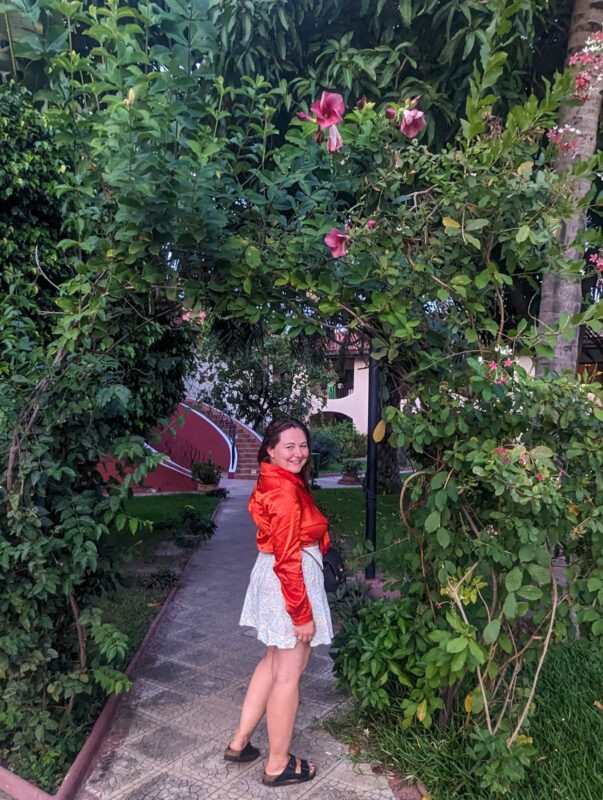
Though The Gambia is predominantly Muslim, the dress code is relatively relaxed compared to more conservative Muslim countries. Wearing shorts at the beach is fine, although I’d recommend covering a little more inland (long, loose trousers and t-shirts with short sleeves are fine).
Emergency contact information
Compile a list of essential contacts, including the embassy or consulate of your country in The Gambia (this is the British consulate in The Gambia) local emergency services and your travel insurance provider. Having this information available is vital in case of an emergency.
Maintain connections
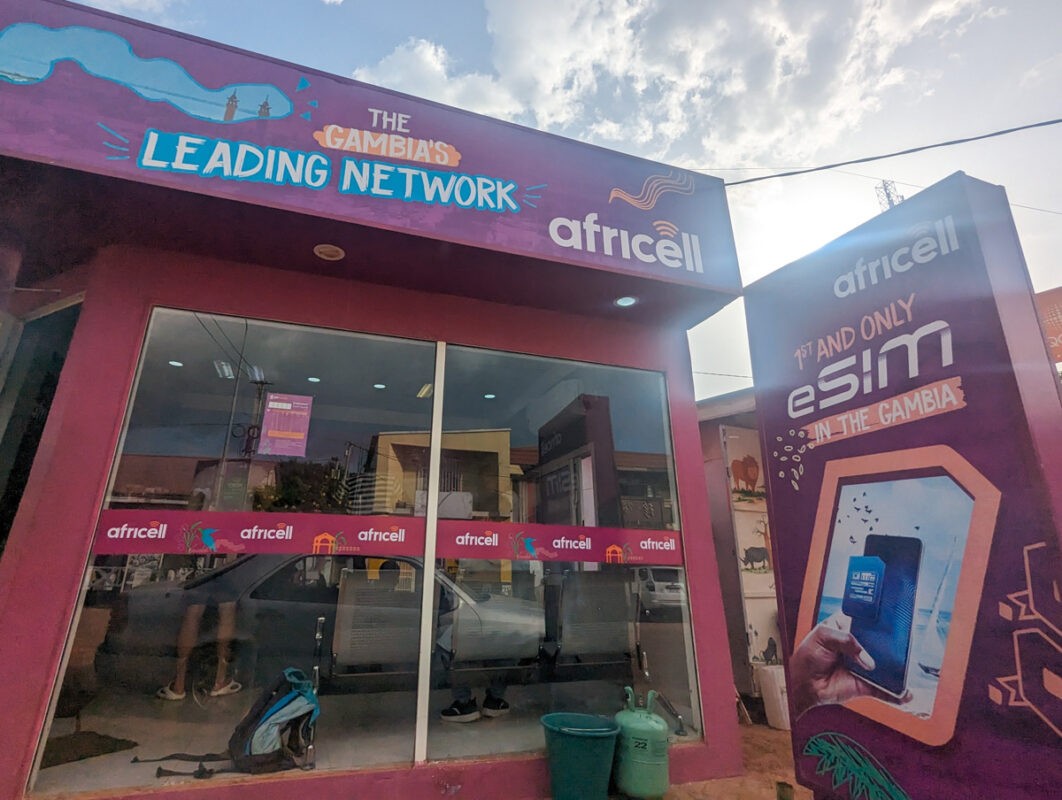
Inform someone of your travel itinerary and consider acquiring a local SIM card for ease of communication. We bought SIM cards from Africell and they worked very well and were affordable! There are also e-SIMs like Airalo available, although we found them quite pricey and the coverage wasn’t as good as physical SIMs.
The Gambia travel safety
The Gambia felt quite safe to me – if you follow some standard travel tips, you should have a hassle-free trip too!
Check out the rest of my West Africa posts:
- Is Senegal safe?
- Is Senegal worth visiting?
- Safaris in Senegal
- Things to do in Dakar
- How to take a Senegal beach holiday
